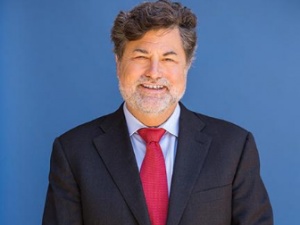In CalMatters, Dean Charles Hale collaborates with UC Social Sciences Deans Katharyne Mitchell (UC Santa Cruz) and Bill Maurer (UC Irvine) to discuss the importance of investing in UC, not cut core instruction.
“On June 13, we watched online as 58,000 University of California graduates received their degrees. It was a bittersweet moment, marked by the necessity of digitally pre-recorded ceremonies streamed online.
We felt a thrill watching the number of viewers tick up into the thousands, knowing that behind that counter sat families and friends celebrating their graduates’ accomplishments.
The following Monday, we returned to a stark reality: The social sciences on our campuses – and quite likely throughout the University of California – stand at the edge of a fiscal precipice.
While our immediate economic woes arise from the consequences of justified public health measures, this conceals a more somber truth: The problem of declining funds has deep policy and institutional roots at least two decades in the making. If we are forced to make another round of cuts to core instructional resources, the quality of education that we can guarantee our students will plummet. There are alternatives to steep cuts, and we must find them.
In the social sciences the faculty carry out research on the high-stakes societal problems of our times, and our findings have a direct impact on policy and political mobilization toward lasting solutions.
In the current public health crisis, for example, social science research has shined a bright light on differential access to health care and disproportionate outcomes based on race, income and other intersectional inequities. We have the tools to understand political polarization and the spread of disinformation, and to track patterns of resilience and recovery after natural and human-made disasters.
But storm clouds have been gathering on the horizon for some time. The Great Recession of 2009 required major budget cuts, from which our units have yet to recover. The downside of our popularity – especially in majors such as economics and sociology – is that over-enrollment threatens educational quality. It is possible for our students to complete college without ever taking a class of fewer than 100 people; some finish without a single sustained interaction with a faculty member.
State investment in higher education has declined steadily over the past decade, while income inequality across the state has deepened. Serious mental health issues among students are rife, yet campus resources are insufficient to handle the growth in demand for care; food insecurity and severe rent burdens are increasing – a problem highlighted most recently by the graduate student strike for a living wage.
Some people think that online education can bring on pedagogic innovation and reduce costs at the same time. They are only half-right. Done right, online education requires considerable upfront investment in technological and pedagogic innovation, and must provide the same intensive support as in-person classes. Done cheaply it yields poor educational outcomes and deepens inequities. Our pivot to online instruction last spring was necessary and remarkably successful, but it does not offer a budgetary solution.
Further cuts in the social sciences would send a dismal two-pronged message to our students, their parents and our alumni: You must pay the same, but you will receive less. The message to the first generation, low-income and underrepresented minority students – who we educate in especially high numbers – would be even worse: You will bear this burden disproportionately.
Students will return to campus energized by protests for racial justice and inspired by the belief that we can rebuild our universities, and our societies, better. They will be prepared to sacrifice to achieve these goals, and to protest further if they feel betrayed. We affirm this vision, and we must work with them to achieve it. We urge the state Legislature to invest in our state’s great engine of mobility, allowing the university to address budgetary shortfalls without cutting core instructional resources.
Last month we celebrated an amazing group of students. We call on all California citizens to work together toward solutions to our fiscal crisis that are as innovative, brave and bold as these graduates. They deserve no less.”







